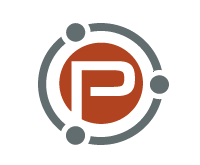ProBlogger: 9 Ways to Better Protect Your Blog |  |
| 9 Ways to Better Protect Your Blog Posted: 25 May 2011 06:06 AM PDT Warren Wooden is the owner and CEO of PLR Internet Marketing. When I think of the amount of time that I've invested into my blog and its resources I'm absolutely staggered by the thought of losing any part of it. So I've taken certain steps to protect myself, as well as my blog. Everyone's blog is at a different level, but regardless of which one you look at, we all have one thing in common: we've poured our hearts and souls into them. Here are a few things you can do in order to protect them. Back up your websiteYou've heard that advice before, and if you've ever had a catastrophic loss of data that took your website offline for a few hours, or—worse—a few days, I'm sure you've remembered it.Backing up your website is protection from server crashes or hacker attacks, but the only way they are fully effective is if you do them religiously. Determine how often you are going to back up your data, and then simply schedule some time to do it. It takes no more than the click of a mouse usually, but can save you a ton of heartache and grief down the road. As someone who has experienced a hacker attack, I can tell you it's not only important to keep the last few copies of your blog, but also a known clean copy in case your backups become corrupted. Often, a website owner may not find out about a virus on his site until he's already completed several backups. If those are all he has, he'll be no better off than if he didn't have any at all. The majority of hosting companies have cPanel installed for their users. If yours does, simply log in to your control panel, and scroll down to the backup icon. Once you click it, you'll be taken to the Backup and Restore page, where you can then click on the Download or Generate a Full Backup button. This will provide you with a full backup of the website, emails, and databases, as well as any "custom" email setups you've configured such as forwarding. Once the backup has finished you'll receive an email notification and can then download the backup file to your home or office computer for safe-keeping. It's important to note that if you ever do run into a crisis, and do not have a current backup, most hosting providers will generate a copy from their end for a nominal fee. These backups are usually only performed weekly so you could end up a week out of date with your site's data. Back up your resourcesBacking up your website is only half the battle. Most of us have a ton of resources sitting on our hard drives in the form of ebooks, video courses, guest posts, graphics, podcasts, competition analysis data, as well as programs we use to promote ourselves, build our social networks, or track our keyword rankings, and so much more. I'd recommend creating one master folder that contains all the individual files, so that it can be easily zipped up, labeled and stored on a separate drive or CD. If you've ever downloaded materials off of the Internet you know that files are compressed for both sending and storage. Two of the most popular programs are Winrar, and Winzip. With these, you can simply right-click on the file or folder you're looking to compress for backup, and choose Add to archive. You'll then end up with a compressed version of all your important files and programs. Back up your list“The money is in the list” is another phrase I'm sure you're aware of and many internet marketers would assert that it is their most valuable asset, yet very few people bother to back it up. Having your list under a third party’s control leaves you with no recourse should the unthinkable happen, and your list end up being lost forever. For more information, see Are you protecting your blog's most valuable asset? Install protective measuresUsing anti-virus measures should be a no-brainer these days, but in case you've missed the message, there are literally hundreds of thousands of different viruses out there, and these nasty bugs can not only crash your system, they can also steal passwords, banking information, and much more. Protecting your computer system will ensure that you're still online tomorrow to make that post, and promote your blog. Here’s a list of antivirus solutions listed in my personal order of preference. I've used each one of these at one time or another, and they each do a commendable job of keeping you and your computer protected the majority of the time. However, it is worth noting that no antivirus program will protect you from every virus 100% of the time. Protecting your system is only half the battle. It's important to also protect your blog from attack. There are several methods you can choose to use to keep the bad guys out. Here are just a few to look into.
These are just a few measures you can look into implementing on your blog, but obviously the more secure you can make it, the better. Find a good web designerI'm sure many of you have the skill and talent to recode your website from scratch, but there are also many like myself who are at risk of ruining everything each time they try and manipulate the code within their site. While this doesn't stop me from constantly tweaking and enhancing my blog in order to continually improve it, it does mean that I keep a designer's phone number on speed dial just in case. Protect your brandIt's a simple matter to setup a few Google Alerts to inform you whenever someone mentions your name, your company name, or the name of your blog. These alerts get conveniently delivered to your inbox where you can take a look to see what is being said about you, and can then respond almost instantly while the effect will be maximized. If you head over to Google Alerts while you’re logged in with your Gmail ID (you will need to have a Google ID, but don't worry, they're free and easy to set up), you can enter the terms you'd like to be notified about, and Google will start keeping an eye out for those terms while it's going about its daily business. Once a website is published or updated with that term, you’ll be sent a notification letting you know. Protect your contentUnfortunately plagiarism is one of the threats we face as bloggers. Unscrupulous individuals scrape content and reuse it on their own thin sights in order to try and outrank sites such as yours. Fortunately Google does a fairly decent job of choosing the original work and ranking it accordingly. Placing a copyright notice at the bottom of your pages is the first step, but you should also actively scan for stolen articles using sites like Copyscape.com. Find a blogging buddyThis is just someone you trust who can take care of posting for you while you are away, perhaps on holidays, or an unforeseen absence of another sort. Just as you'd have a neighbor look in on your house, it's a good idea to have someone you can trust to look in on your blog. Make a blogging willYour blog is an asset, and should be treated that way. Even if it's just a case of creating a document instructing your wife who to contact in case of the need to sell it, or perhaps a full-fledged document that details how everything works, and how to continue running things in case you yourself are unable to do so. While this might be a morbid thought for some, the thought of losing all the work you've invested after a few missed hosting bills is even more unbearable for many. Darren recently wrote a detailed post on the subject. Getting yourself into a few healthy habits such as the ones listed above can save you time, stress, and money. The peace of mind that will likely result from these actions will more than make up for any inconveniences you incur implementing them. What tips can you add from your own experience protecting your blog? Share them in the comments. Warren Wooden is the owner and CEO of PLR Internet Marketing. If you're an entrepreneur, or would perhaps like to learn how to make money online through Internet marketing, blogging, or affiliate marketing, please stop in for a visit, or to grab your free copy of his 79-page ebook. Post from: ProBlogger Blog Tips 9 Ways to Better Protect Your Blog |
| You are subscribed to email updates from ProBlogger Blog Tips To stop receiving these emails, you may unsubscribe now. | Email delivery powered by Google |
| Google Inc., 20 West Kinzie, Chicago IL USA 60610 | |









0 comments:
Post a Comment